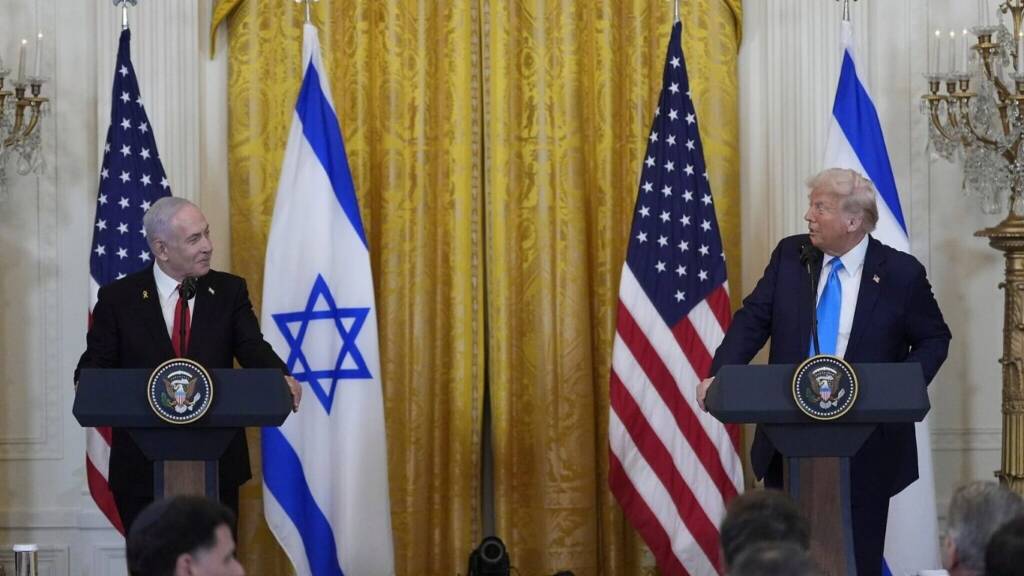In a recent development from the Trump administration, the US approved the selling of $7.4 billion worth of arms to Israel and showed its commitment to its closest West Asian ally. The deal provided thousands of Hellfire missiles and bombs and was fast-tracked by the State Department in order to strengthen the strategic partnership between Washington and Tel Aviv. This move shows the US administration’s continued support for Israel’s security needs amid regional threats. It has, however, been surrounded by controversy on the role of congressional oversight in foreign military sales.
The quick approval of this arms deal outlines the long commitment to defence cooperation between the US and Israel. The package consists of $6.75 billion in bombs, guidance kits, and fuses and $660 million worth of Hellfire missiles. The deal is believed to help Israel scale up its military capabilities against the new emerging threats that have recently surfaced. According to the US Defense Security Cooperation Agency, the sale will improve Israel’s defence of its borders, critical infrastructure, and civilians from hostile forces.
Israeli Prime Minister Benjamin Netanyahu met President Donald Trump during a recent visit to Washington. The visit was meaningful for Israel, as Trump spoke on Gaza, highlighting that Gaza will be rebuilt and the Palestinians have to leave the place for that. The meeting also reportedly centred on regional security and strategic cooperation. Reportedly, The deal also looks at the result of the visit, which ensures Israel’s military edge in an increasingly volatile West Asia.
Such an approval of arms sale without a full review from Congress has raised concerns among some lawmakers, such as the head of the House Foreign Affairs Committee, Rep. Gregory Meeks. Meeks expressed his disapproval of this move to bypass the standard oversight process, while the Trump administration claims that the decision is made to ensure support to Israel rapidly.
The sale comes after the previous Biden administration had also promised major arms deals with Israel, including a $20 billion sale of F-15 fighter jets. However, Biden had temporarily halted a shipment of 2,000-pound bombs over worries about civilian death in Gaza. Trump has reversed that decision, reaffirming his administration’s full-fledged support for Israel’s military needs.

The arms sale is expected to boost Israel’s defence posture at a critical time. Following the October 2023 attack by Hamas, Israel launched a military response aimed at neutralizing threats from Gaza. The long war has brought military equipment fatigue and must have cost a lot of arms from its arsenal, which needs to be fully filled, and the deal may solve this issue. The conflict has led to significant devastation and displacement, but Israel has maintained that its actions are necessary for national security.
Also Read: Trump to sanction International Criminal Court for “targeting” US and Israel
Critics argue that continued US military support to Israel fuels regional tensions, but from the US’ perspective, ensuring Israel’s security remains a top priority. The Trump administration has stated that arms sales are a necessary step to maintain stability and deter adversaries in the region. It is also required to reinforce America’s commitment to defend Israel.
The State Department has formally approved the sale, but Congress still has the authority to challenge it. However, given Israel has been a long closest ally in West Asia and the presence of a strong Israeli lobby in the US, any significant pushback remains unlikely. Trump’s recent discussions with Netanyahu suggest that further military and strategic collaborations could be on the horizon, especially in the reconstruction of Gaza and pushing Palestinians out of Gaza.
As the US continues to prioritize Israel’s defence needs, this arms deal sets a precedent for future engagements. Washington’s commitment to bolstering Israel’s military capabilities remains a cornerstone of its West Asia policy, signalling a continued partnership in addressing regional threats and maintaining strategic stability.








